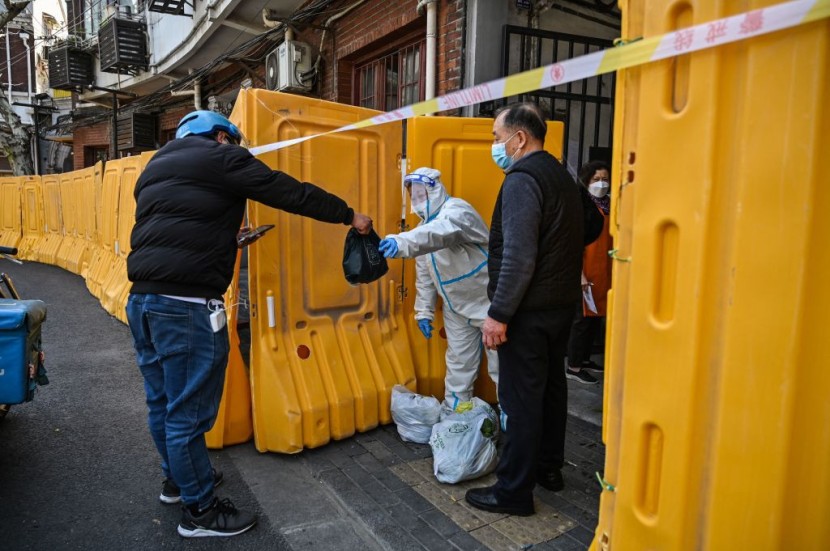
The local government of Shanghai eased COVID-19 restrictions in China's biggest city, allowing more than 4 million people to go outdoors after being locked in their homes to manage the surge of infections in recent weeks.
Though, the International Monetary Fund (IMF) lowered its projection for Chinese economic growth due to the possibility of disruptions in economic activity.
Following the first phase of relaxation of rules last week, about 12 million people in the city of 25 million are now free to go outside, according to health official Wu Ganyu.
For the first time, Wu declared the virus was "under effective control" in some areas of the city, NPR reported.
Over 4 million people dwell in places where the status has changed from closed to controlled. He claimed that certain people are not permitted to leave their areas, and huge gatherings are forbidden.
Some Companies Back In Business
Shanghai, China's business capital, reported no new COVID-19 infections outside quarantine areas in two districts on Wednesday, raising hopes that the pandemic's wave is receding as some factories resumed operations.
US car manufacturer Tesla was on a list of 666 companies that the Chinese government announced last week would be given priority in reopening or continuing operations in Shanghai, according to a report from Reuters.
Following the outbreak's start in early March, the city's 25 million residents were faced with a loss of income, erratic food supply, family separations, and inadequate quarantine facilities.
While 16.3 million people are still unable to leave their flats or housing compounds, reports say that some of those who are subject to loosened restrictions say they are still unable to obtain the necessary clearance from neighborhood officials to walk outside.
This week, authorities increased the daily testing of residents and sent positive cases and their close relatives to quarantine centers outside Shanghai.
Read Also : Solomon Islands: China Confirms Signing Security Pact Despite Criticism From US, Australia
China's Economy Is Hurting
The IMF predicts China will experience a lengthy slowdown, exposing structural flaws such as excessive local government liabilities, property developer leverage, consumer debt, and a weak banking sector.
In its latest World Economic Outlook, the IMF said that the country's economic activity would be affected by the "more transmissible variants and the strict zero-COVID policy" that will increase uncertainty.
The IMF also warned that Beijing's restrictions "would likely compound supply disruptions" and contribute to rising inflation.
"Larger disruptions could impact key commercial activities, including through port lockdowns," the financial institution said.
The change in the growth outlook came after China struggled to counter economic issues, with the help of state-run media is downplaying the concerns.
China reported 4.8%GDP growth in the first quarter of 2022 compared to the same period a year ago, up from 4% in the previous quarter but still short of the full-year goal of around 5.5%, per South China Morning Post.
Despite relatively solid headline growth, the economy slowed substantially in March as China suffered its biggest Covid-19 outbreak in two years.
During a crucial year for President Xi Jinping, who is poised to win a third term in autumn, a lockdown in the economic hub Shanghai and sporadic outbreaks across the country caused a devastating impact.
China maintains its zero-Covid policy, which involves severe lockdowns, mass testing, and quarantine in state buildings, despite several countries implementing loose COVID-19 restrictions.








